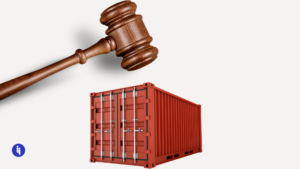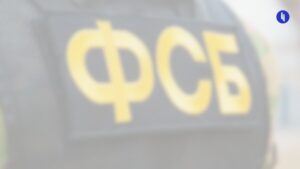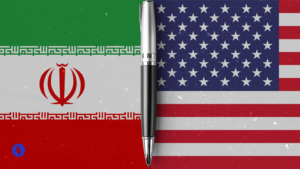In a world where everyone’s clutching their resources like a squirrel with its last acorn, countries and companies are doubling down on the “mine, not yours” strategy. Trade wars? Check. Tech bans? Of course. Tariffs? Getting handed out like Halloween candy.
That’s because protectionism, like the mullet, is somehow now back in vogue. And that’s spooked top IMF economists enough to warn last week that a swift unravelling of economic connectivity could do more harm than good.
So, sit back, perhaps grab an acorn or some Halloween candy, and enjoy these four quick illustrative stories of how this is all now playing out around the world —
Stay on top of your world from inside your inbox.
Subscribe for free today and receive way much more insights.
Trusted by 129,000+ subscribers
No spam. No noise. Unsubscribe any time.
- Indonesia blocks the iPhone 16
Jakarta just confirmed on Friday that, because US tech giant Apple isn’t hitting Indonesia’s 40% local-made requirement, Apple isn’t allowed to sell the new iPhone 16 in Indonesia’s fast-growing market.
Now, funnily enough, when Indonesia’s industry minister (Agus) first pitched his country to Apple, he emphasised its value as an export hub. What Argus might’ve left off the pitch deck is that he’d cut imports if Apple didn’t invest enough. Vintage carrot and sticks.
Anyway, Indonesia has long imposed local content thresholds, often with success (its nickel rules famously forced foreign firms to invest in local processing plants). But as protectionism comes back in vogue, Indonesia’s local content bar seems to be getting higher – in the case of smartphone components, from 30% in 2017 to 40% today.
Justification: To boost investment, lift domestic production, and move up the value chain
- Finland, Germany, and Spain block asset sales
Whilemany Intriguers will already be familiar with US plans to block Nippon Steel’s $14.9B acquisition of US Steel on national security grounds, the White House isn’t alone —
- Finland has just blocked six real estate transactions by foreign buyers (whose passports were from 🇨🇭, 🇷🇺, and 🇺🇦)
- Germany’s cabinet has blocked Volkswagen from selling a sensitive gas turbine subsidiary to a state-owned company in China, and
- Spain has blocked the sale of train producer Talgo to a part state-owned firm in Hungary (a fellow EU member!) due to the firm’s Russian links.
Most capitals now have some kind of mechanism to play the national security card – like the secretive Committee on Foreign Investment in the United States (CFIUS) – but many governments now seem to be playing that card more often as perceived threats expand. The trick, however, is not to dissuade much-needed (legitimate) investment along the way. That’s why Australia just streamlined its rules after years of investor frustration.
Justification: National security
- Brazil and South Africa tax low-cost deliveries
A day before China-based online retailer Temu launched in Brazil, the Brazilian senate imposed a 20% tariff on goods purchased from overseas platforms valued at less than $50. Coincidence? Of course not. Temu made the initial decision to enter Brazil back when <$50 items were still exempt, and local competitors soon got spooked. Why?
The same reason locals have been spooked in South Africa, the EU, the US, and beyond: bricks-and-mortar retailers and suppliers say they can’t compete with ultra low-cost foreign players like Temu and Shein, especially when they pay no local taxes.
Justification: Closing a tax loophole to prevent unfair competition
- Kenyan and French workers oppose foreign investors
In early September, Kenyan airport workers walked off the job after news broke that the country’s largest airport, Jomo Kenyatta International, was getting an upgrade from India’s Adani Group on a Kenyan government contract worth a cool $1.85B.
But Kenyan workers wanted guarantees that their union would be involved in the decision-making and that jobs wouldn’t get axed as Adani took over operations. So they staged a one-day strike shouting “Adani must go”, disrupting hundreds of passenger flights until the government agreed to include the union in leasing talks.
And this isn’t just a developing economy issue, mind you: French workers felt the same way when US private equity firm CD&R moved to acquire a subsidiary of French pharma-giant Sanofi — Paris only gave the green light after attaching penalties if the Americans outsourced jobs.
Justification: Worker rights
INTRIGUE’S TAKE
Can you guess what the best-selling non-fiction book in the US was exactly 40 years ago? It was the autobiography of Lee Iacocca, one of the few auto executives to lead two of America’s ‘big three’ automakers (Ford and Chrysler). Of course, the world has changed since then (Chrysler is now even European-owned).
But one of Iacocca’s famous lines reflects on a timeless question: “Where do you get good judgement? From experience, of course. And where do you get experience? From bad judgement.”
Many of the above players – whether governments, businesses, or unions – would argue they’re now course-correcting after getting burnt on some bad judgement calls during the heyday of globalisation: whether trusting that China would play by the WTO rules, or trusting that a multinational would see a local market as more than a pot of gold, or trusting that a foreign investor would add value not just for their shareholders.
The missing ingredient in each case here is trust. And in this 2024 of ours, that’s hard to build; easy to lose. But for most economies out there, there’s still just not enough demand at home to sustain and lift living standards alone — that’s why the IMF is warning that, whatever the reason, a retreat inwards ultimately risks harming us all.









